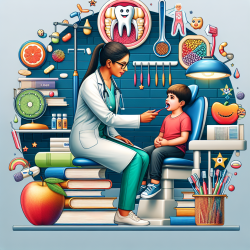Introduction
In the evolving landscape of health research, integrating gender perspectives is crucial, especially when examining conditions like Multiple Chemical Sensitivities (MCS). This blog explores the findings from a comprehensive review of social science literature on MCS, focusing on the integration of gender sensitivity and its implications for practitioners.
Understanding Multiple Chemical Sensitivities
MCS is a condition characterized by adverse reactions to low-dose chemical exposures, often in everyday environments. It disproportionately affects women, raising questions about the role of gender in both the manifestation and management of this condition.
Key Findings from the Research
The research, as detailed in the article "From individual coping strategies to illness codification: the reflection of gender in social science research on Multiple Chemical Sensitivities (MCS)," highlights several critical points:
- Gender Sensitivity: Studies that integrated gender perspectives often focused on women's roles and identities, emphasizing personal adaptation strategies.
- Terminological Confusion: There was a notable conflation of sex and gender terms, with many studies failing to distinguish between these concepts.
- Underreported Male Experiences: Although men were included in study samples, their specific experiences with MCS were largely underreported.
- Systemic Issues: Research that overlooked gender often addressed broader systemic issues, such as medical codification and the dynamics of expertise.
Implications for Practitioners
For practitioners, especially those involved in online therapy services like TinyEYE, these findings underscore the importance of a nuanced approach to MCS. By considering gender dynamics, practitioners can better tailor interventions and support mechanisms. Here are some actionable steps:
- Incorporate Gender-Sensitive Practices: Recognize the different ways MCS manifests in men and women, and adapt therapeutic approaches accordingly.
- Promote Awareness: Educate clients and stakeholders about the gendered aspects of MCS to foster a more inclusive understanding.
- Encourage Further Research: Support and engage in research that explores the intersection of gender and environmental health conditions.
Conclusion
Integrating gender perspectives in research and practice not only enriches our understanding of MCS but also enhances the quality of care provided to affected individuals. Practitioners are encouraged to delve deeper into the original research to further refine their approaches.
To read the original research paper, please follow this link: From individual coping strategies to illness codification: the reflection of gender in social science research on Multiple Chemical Sensitivities (MCS).










